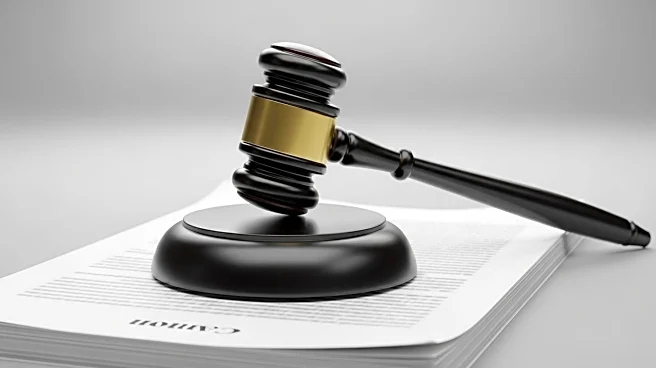What is the story about?
What's Happening?
U.S. courts are increasingly imposing sanctions on lawyers and pro se litigants for relying on generative artificial intelligence (GenAI) that produces hallucinations, or fictitious case citations. This trend follows a growing number of instances where legal professionals have submitted briefs containing non-existent cases generated by AI tools. The courts have responded with penalties ranging from warnings to significant fines, emphasizing the need for improved training and regulations in the use of GenAI. In recent cases, such as Coomer v. Lindell, attorneys faced sanctions for failing to verify AI-generated citations, highlighting the judiciary's concern over the misuse of AI in legal proceedings.
Why It's Important?
The crackdown on AI hallucinations in legal filings underscores the judiciary's commitment to maintaining the integrity of legal proceedings. As AI tools become more prevalent in legal research, the potential for misuse poses risks to the credibility of legal documents and the efficient functioning of the judicial system. The imposition of sanctions serves as a deterrent, encouraging legal professionals to exercise due diligence when using AI tools. This development is significant for the legal industry, as it prompts firms to reassess their reliance on AI and invest in training to prevent reputational and financial harm.
What's Next?
As courts continue to address the misuse of AI in legal filings, it is likely that more stringent regulations and guidelines will be developed to govern the use of GenAI in the legal profession. Legal firms may need to implement comprehensive training programs to ensure their staff are equipped to use AI responsibly. Additionally, the judiciary may establish specific rules or standing orders to prevent the submission of AI-generated fictitious cases, thereby safeguarding the integrity of legal proceedings.
Beyond the Headlines
The issue of AI hallucinations in legal filings raises broader ethical and professional responsibility questions. Legal professionals must balance the efficiency offered by AI tools with the obligation to ensure accuracy and truthfulness in their submissions. This situation also highlights the need for ongoing dialogue between the legal industry and AI developers to refine AI models for legal applications, ensuring they meet the rigorous standards required in legal contexts.
















